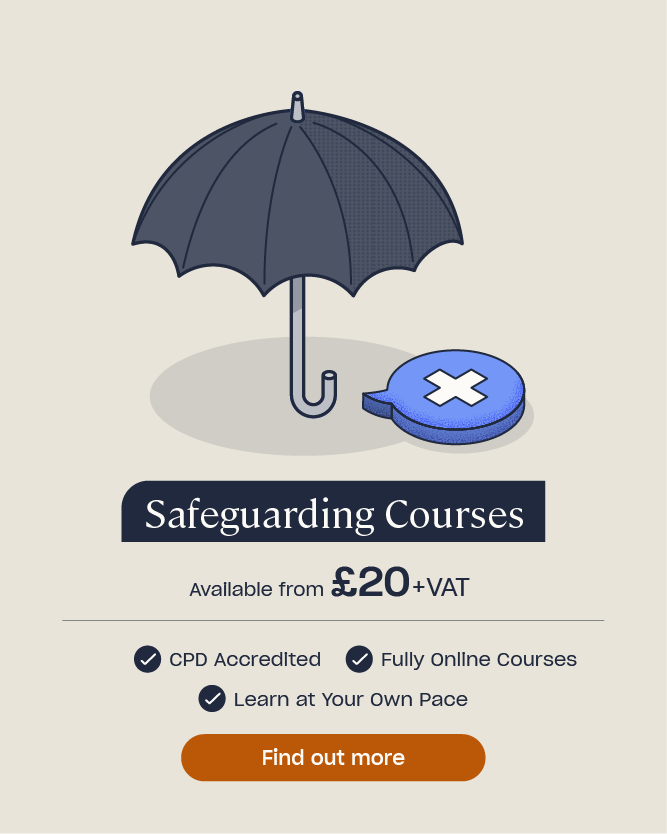Interview Questions for Care Workers
The health and social care sector has many different roles available for those both new to the sector and those wishing to progress beyond their current position. It is the duty of those working with patients and service users to provide safe, effective, high-quality care and support.
To ensure those applying for roles in health and social care are suitable, prospective employers will go through a safer recruitment process, utilising the interview stage to ask key questions to assess a candidate’s suitability for the role. This article will outline a number of potential interview questions for care workers along with advice on how to respond, helping you to feel better prepared and more confident when being interviewed.
What Types of Care Interview Questions Should I Expect?
Whether you are interviewing for a role in a care home, home care, or a hospital setting, it is likely that you will be asked a variety of questions. These help the interviewer to learn more about your experience, knowledge and you as a person. The main categories of interview questions for care workers include:
Technical questions –
Whilst you do not have to have a medical qualification for a care role and there are positions available to those who have no previous care experience, employers may like you to show a general awareness of some of the common conditions you may come across as a care assistant. You may also need to show an awareness of some of the key policies and procedures involved in care.
Personality questions –
These types of questions are used to help the interviewer assess how suited your personality is to a care assistant role. They may involve questions about how you would react to certain events or scenarios, such as confrontations and conflict within the workplace.
Experiential questions –
Experiential questions do not necessarily refer to the experience you have from previous care roles. As we have mentioned, you could be applying for your first job in care. Depending on your previous work experience, they may use these types of questions to ask you about experiences from a working role, personal experience you may have gained caring for a loved one, volunteer work, or any transferable skills and experience you have that can be brought to the role.
There will likely be questions regarding your general approach and attitude to work and some to determine how much you know about the organisation and the setting you are hoping to work in. Most organisations will have a website you can look at beforehand.

Interview Questions and Answers for Care Workers
There are a variety of roles available for care workers and the questions asked are likely to reflect these differences. For example, those interviewing for a one-to-one care support role with an individual, will possibly have a different interview experience than someone applying for an NHS post on a busy ward.
Care jobs come under different titles, such as care worker, carer, care assistant, care support worker, or healthcare assistant and depend on the setting in which care is being delivered.
If a role requires a certain level of experience and skill set, it will be detailed within the person specification and job description, study these carefully before both completing your application form and prior to interview. Make notes of how you are able to meet these requirements as it is likely that you will be asked questions designed to specifically address them.

We will now look at some example questions that you may be faced with during your interview. Think about how they apply to you, what your response may be and how it aligns with the position you are hoping to fill.
Question: What do you think is involved in a role as a care worker?
Answer: If you are not already experienced in the role then it is important you do your research. You will find the information you need in the job description. Looking online at the company website can also help you to see how they describe their care assistants and what is expected of them, or you may find additional insights from forums and review sites left by those who have first hand experience in the role.
Question: Why do you want to be a carer?
Answer: This helps the interviewer to assess whether your personality is suited to a caring role, so your answer needs to show the reasons you are. The reasons why people go into care work can be very personal, such as having witnessed the care and support a family member received, or that you have helped care for a loved one yourself.
Being a carer has many benefits and can bring an immense amount of job satisfaction, so It may be that you want to help others and enjoy being able to make a difference to other people’s lives. Whatever the reason, share your motivations for wanting to work in care.
Question: What qualities do you bring to the role?
Answer: To answer this question, it can be useful to consider the motivations you have for wanting to work in care, as they are likely linked to what you can bring into your work. For example, if you enjoy the company of others, and get satisfaction from helping and comforting those in need, you will have the soft skills required to bring essential qualities into a caring role.
Having empathy, being a good listener and being able to put people at ease form the foundation of being able to build positive relationships and good communication with both colleagues and those you are caring for. For further guidance on the importance of communication, take a look at our Promoting Effective Communication in Health and Social Care article.

Question: How would you maintain confidentiality in your work?
Answer: Patient and service user confidentiality is vital in the health and social care sector. You could answer this question based on your care experience, or from any previous professional or personal experience you may have. Make it clear you understand its importance and the role it plays in ensuring a trusting relationship with those under your care.
An individual’s private information should remain so, only being shared when appropriate, and in-line with policies and procedures. How their information is stored is also very important. It may be worth doing some research around information governance before your interview.
Question: Tell me about a stressful experience you have had and how you dealt with it?
Answer: Your answer to this can come from either work or personal experience, and whilst it may feel difficult to talk about, these experiences often provide us with an opportunity to learn and develop from. This personal growth is often what the interviewer is interested in, as well as how you handled it.
Some stressful experiences can help you to become more understanding of those you care for and their loved ones, you may have suffered your own health related experiences, or been through loss and grief. This question can provide an opportunity for you to explain how you dealt with difficult emotions arising from stressful situations, as well as any practical solutions you found.
Many stresses from working in health and social care can come from conflict and confrontations. If you need further help on understanding how to deal with these situations, take a look at our Managing Conflict in Health and Social Care: Guidance on Recognising and Handling Confrontations article.

Question: Have you cared for anyone before?
Answer: This question may be relatively straightforward to answer if you already have professional care experience. If you have not but have personal experiences of caring or helping to care for someone, this is a good experience to draw on. You may want to consider some volunteer work as this can be a beneficial experience to discuss during an interview.
For those entirely new to care and with no previous experience, look to your transferable skills. This means any skill you have that can be utilised in a care role and helps match you to the person specification and show you are well suited to the role. This might come from working in customer service, or a job that required teamwork and time management skills.
If you are leaving a non-related job to begin a career in care, the interviewer will likely ask you what has motivated you to make that move. This is often where showing your soft skills and qualities can be highlighted to show that you have compassion and a motivation for care work.
Question: What can you tell me about safeguarding?
Answer: This is another common question you are likely to be asked as safeguarding is such a vital part of care work and working with adults at risk. Research this topic if it is not one you are familiar with so that you are able to explain to the interviewer what it means and how it would impact your role as a carer. The Care Act 2014 sets out a clear legal framework and provides guidance for how local authorities and other parties involved in the safeguarding system should protect adults at risk of abuse or neglect.

Question: What can you tell me about person-centred care?
Answer: Person-centred care means putting the individual at the heart of their own care. It is about getting to know the individual, their likes, dislikes and preferences and tailoring their care to suit their needs and not the needs of the service. Understanding how to involve people in their own care is an important part of being a carer. If you are unsure about what this means in practice, take a look at our article What is Person-Centred Care and Why is it Important?
Tips for Securing a Role in Care Work
The first step to securing a role in care work is to find the right match for you. Don’t apply for a role simply because it is available, do your research and look into the company and the role itself before applying, even if you are experienced in care. Transitioning from a home care role into either a care home or a hospital role can be quite a change and may not suit everyone.
Once you think it could be the right role for you, ensure you really sell yourself at the application stage. There may be an application form or you may be handing in your CV and a cover letter. Whatever the case, make sure you read the advertisement, person specification and job description carefully and try to fully cover each point to show you meet their requirements.
If there is an opportunity to add supporting information, do so. You can add here anything you have not had the chance to say elsewhere, such as any skills, knowledge or experience that showcases your suitability for the role. If your initial application is not successful, do not resubmit the same again, look at how it can be adapted to ensure you better meet the person specification.

Once you have been invited for an interview, it is time for you to prepare. Ensure that you:
- Familiarise yourself with the job description and person specification.
- Look over your completed application again.
- Do your research on the company and the department or setting the role is in.
- Make notes for how you will answer some of the potential questions you may be faced with.
- Prepare questions to ask at the end of your interview, being careful not to ask anything they have already covered during it.
When it comes to the interview itself, it is important to make a good impression. To help achieve this, make sure you:
- Dress appropriately.
- Arrive in good time and allow for any issues that may arise with your travel arrangements. Have the details of who to contact if you have been held up and let them know as soon as possible.
- Are aware of your body language. Smile. It helps to convey confidence and friendliness.
- Offer eye contact with all those involved in your interview, if there is more than one person interviewing you, try and avoid only making eye contact with the person asking the question so you show you are engaging with them all.
- Answer questions clearly and concisely, focus on making a few main points.
- Sell yourself, do not refer them back to your CV or application form. They are looking for you to tell them why you are right for the role and what you can offer.
- Ask questions to show you are interested, and don’t be afraid to share that you are keen to get the job.
Whether you are new to care, progressing in your career or are taking on a change in duties and setting, it is important to be prepared at all stages of the recruitment process. Making sure you are a good match for the role and that you meet the person specification helps to ensure you are the right person to provide high-quality care to those in need.
Further Resources
- Online Safeguarding Courses
- How to Support Professional Development in Health and Social Care
- Promoting Effective Communication in Health and Social Care
- Using a Personal Development Plan in Health and Social Care
- Careers in Health and Social Care







